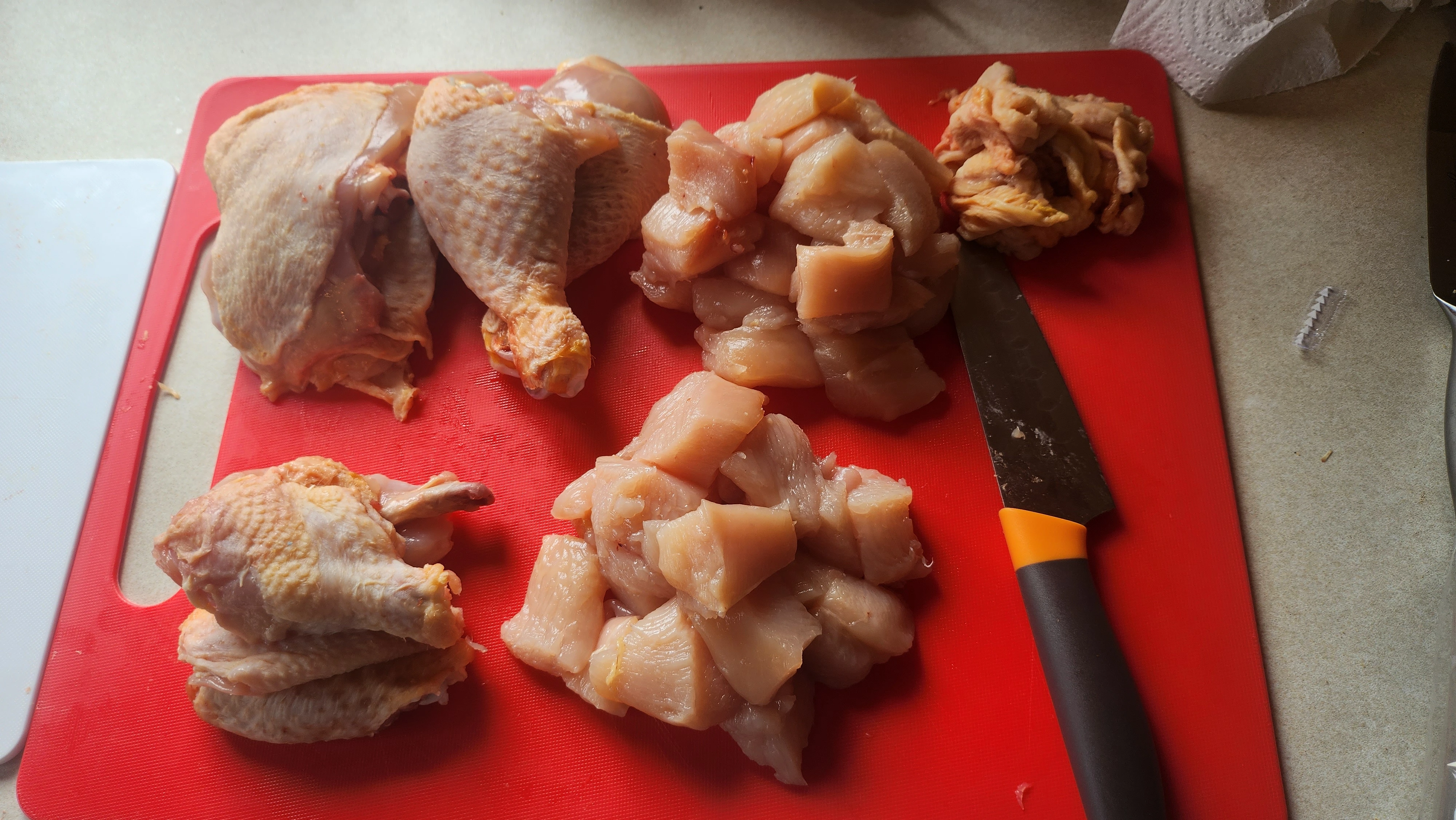These chickens are kept to give blood samples each week to monitor for mosquito born illnesses in the community. They have a very important job to do!
The department has taken the "lowest common denominator" approach to standard of care. Most of the chickens are pecked nearly featherless with visible signs of poor health. "They're just chickens", "the coop is gross" "I just go in to feed them", ect.
I'm no expert, but this isn't right. I've lost a lot of respect for my coworkers, they aren't reliable sources of information on care.
Coop has a dirt floor, with 2-3 inches of straw bedding. Soil was hard packed before intense raking. Roughly 200sqft.
They are fed Nutrena Country Feeds 16% pellets in the feeder pictured below. When I visit, I give them a cup of the wet pellets mixed with one of their eggs (I was told this is great for them?).
I am allowed to visit my girls for 30 minutes, every Monday, Wednesday and Friday. I let coop #1 forage in a fenced area while I clean their coop, but coop #2 cannot. They are located deep in the woods, with no clear area I could watch them.
What can I do to give my girls the best possible life while they work for science?
My department only provides feed and straw, everything else is my personal funds.
So far I've added bedding, supplement their diet with foraged invasive plant species (from a safe source) and meal worm treats, hang cabbage heads to entertain, and brought in novel objects for them to perch around on. The coop not featured has a "merry go round" I've made out of a bike wheel.
How often (and how) should I clean the coop? Right now, I dig a hole in the floor and bury all the roost poop, then rake all the bedding into a pile to redistribute. I use a hose to wash out their water bowl and poop from any hard surfaces.
Is leash training a genuine option for life enrichment? The harness fits, but it makes them SPRINT.
Any and all advice is GREATLY appreciated, thank you all so much :)

